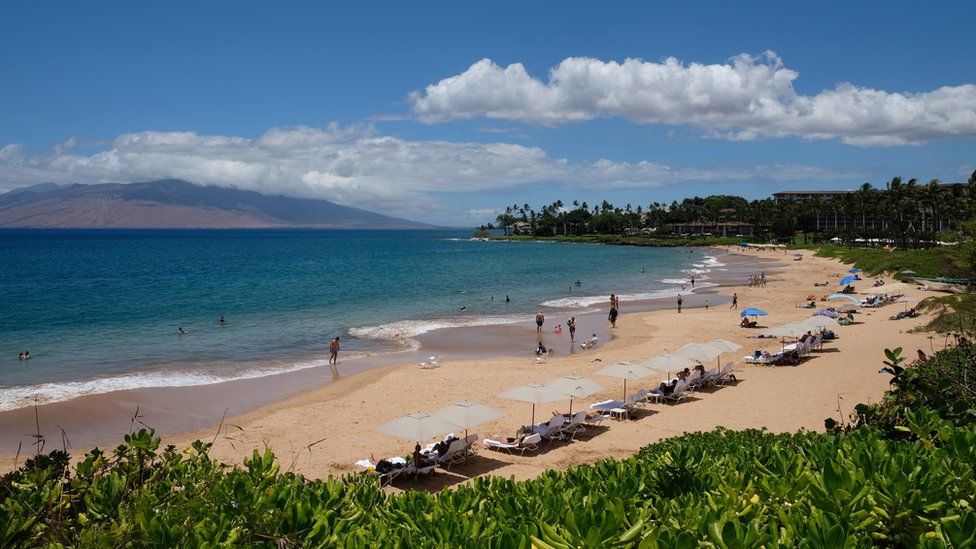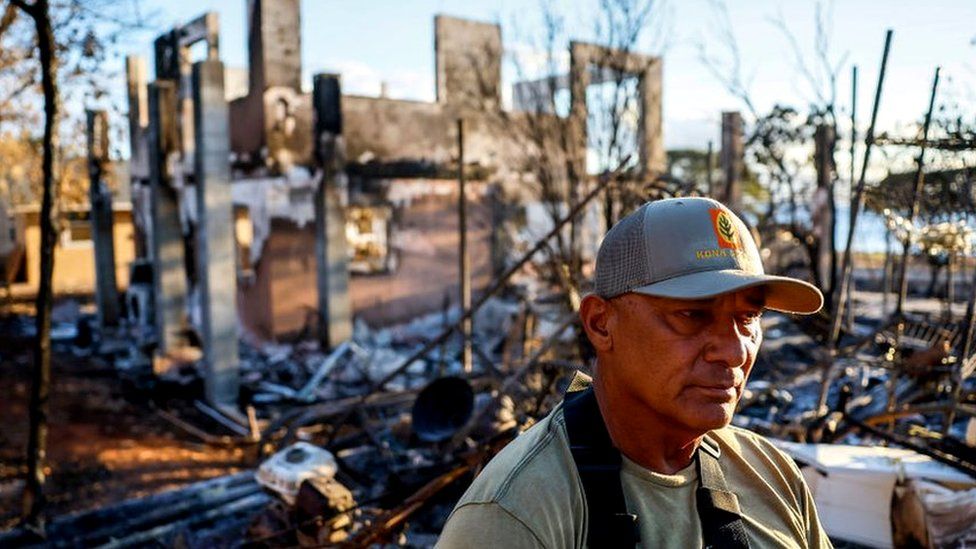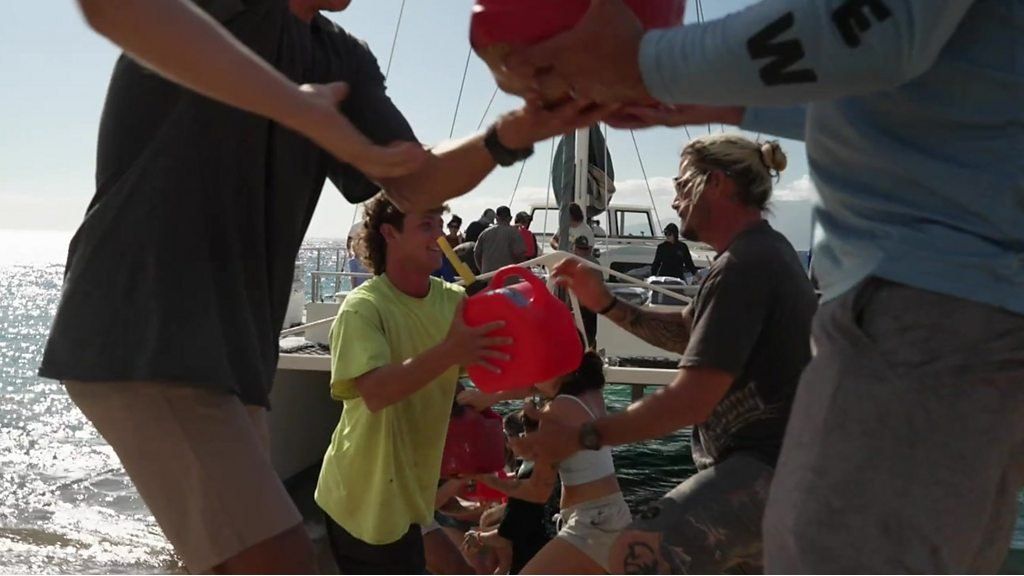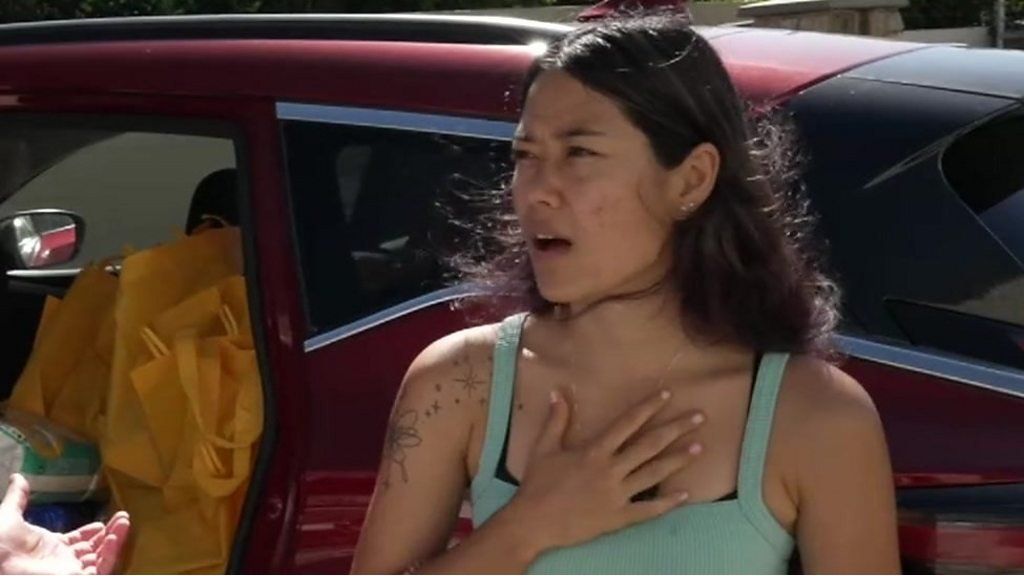This video can not be played
To play this video you need to enable JavaScript in your browser.
Maui’s emergency management chief has quit a day after defending his agency’s failure to activate its alarm system in last week’s fatal wildfire.
Herman Andaya, who had no prior experience in emergency management, cited “health reasons” for resigning.
In the days since, residents of the Hawaii island have told the BBC a stronger emergency response could have saved more lives.
At least 111 people have been declared dead. Hundreds are still missing.
Maui’s sophisticated system, which includes 80 sirens around the island, is tested on the first of every month, its 60-second tone a normal part of life in Lahaina. But on the day of the fire, they remained silent.
On Wednesday, Maui Emergency Management Agency boss Mr Andaya insisted he did not regret that decision.
He said he had feared the sirens – most often sounded for tsunamis – would have sent some in Lahaina running to higher ground, potentially into the path of the fast-moving blaze.
But in Lahaina on Thursday, none of the residents who spoke to the BBC accepted this explanation, saying the siren would have provided a crucial warning of the approaching danger.
On the day of the fire, many in Lahaina were home, without power, because of the strong winds caused by nearby Hurricane Dora. And a text alert sent by the county was missed by many residents who had lost service.
“The sirens should have been sounded,” said Sherlyn Pedroza in Lahaina. Ms Pedroza, 20, lost her family home in the fire last week.
“It would have alerted at least some people stuck at their house – work was off, school was off – it would have alerted them to get out.”
As she finished speaking, Ms Pedroza spotted a neighbour from Lahaina, Alfred “Uncle Al” Dasugo, who she had not seen since the fires. She ran to him crying and hugged him. “We didn’t know if you made it,” she said. Uncle Al just smiled.
This video can not be played
To play this video you need to enable JavaScript in your browser.
Driving to Lahaina on Thursday along Maui’s scenic Honoapiʻilani Highway, signs of the town’s destruction were gradual.
Traffic lights went dark about 5 miles from the town’s centre. Another mile along, the charred shell of a car sat off the side of the road, facing out towards the sea, the first real clue of what lay ahead.
Military and police patrolled the streets, guarding checkpoints surrounding the hardest-hit areas of the historic town.
What was once a bustling strip mall, complete with a nail salon, a hairdresser and an ice cream shop, is now a makeshift operations centre, its car park filled with tents of aid – 8ft tall piles of nappies, 6ft tall stacks of bread.
Lahaina residents like Ms Pedroza were among the volunteers.
Standing among the crowd was Ronnia Pilapil, a resident of Lahaina, loaded down with clothes, rice and toilet paper for his family, now staying in a nearby hotel.
Last Tuesday, Mr Pilapil, 38, watched as his family home – a light blue bungalow with a wide front yard – was consumed by fire.
He had stayed behind, sending his wife and nine-year-old daughter away while he tried to fight the flames himself using a garden hose. But the wind became so strong the water started to fly back into his face. “That’s when I knew it was going to be bad,” he said. “So I just ran.”
He looked back once he reached higher ground to see his house destroyed. But Mr Pilapil said he felt lucky just to be alive.
“People died trapped in their homes. That’s all I’m thinking about,” he said.
When asked about US President Joe Biden’s visit scheduled for Monday, most residents who spoke to the BBC simply shrugged. One said he worried Mr Biden and his entourage would be “disruptive” to ongoing emergency operations. Others, like Ms Pedroza, said they wished it had been sooner.
Nine days after the disaster, many in Lahaina seem focused on the future, rebuilding their homes and their town.
Despite the timeline – many said they expected the reconstruction to take several years – none said they had any plans to leave, to try life somewhere new.
“This is all I’ve ever known, this is my home,” said Ms Pedroza. “Nobody’s selling. We want Lahaina back, and we’re going to get it.”
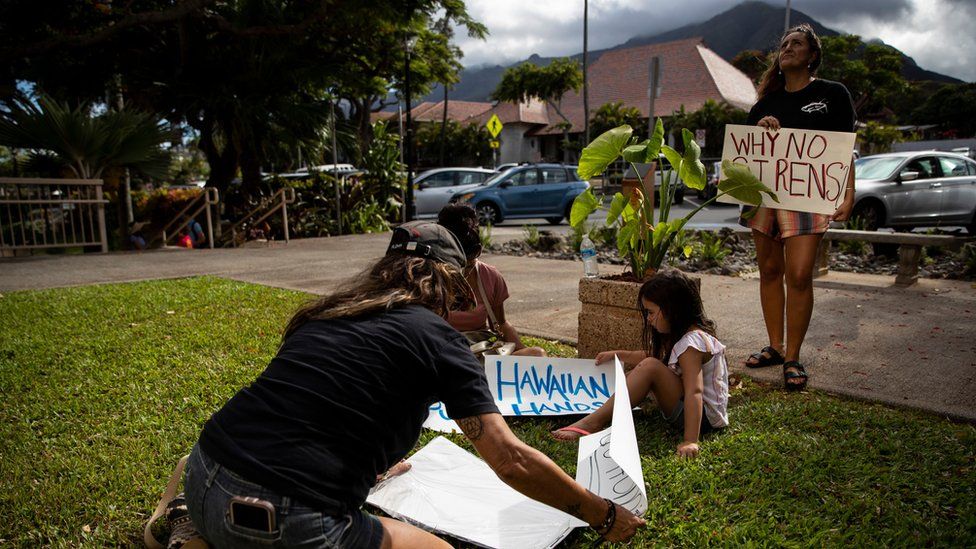
Related Topics
-
-
10 hours ago
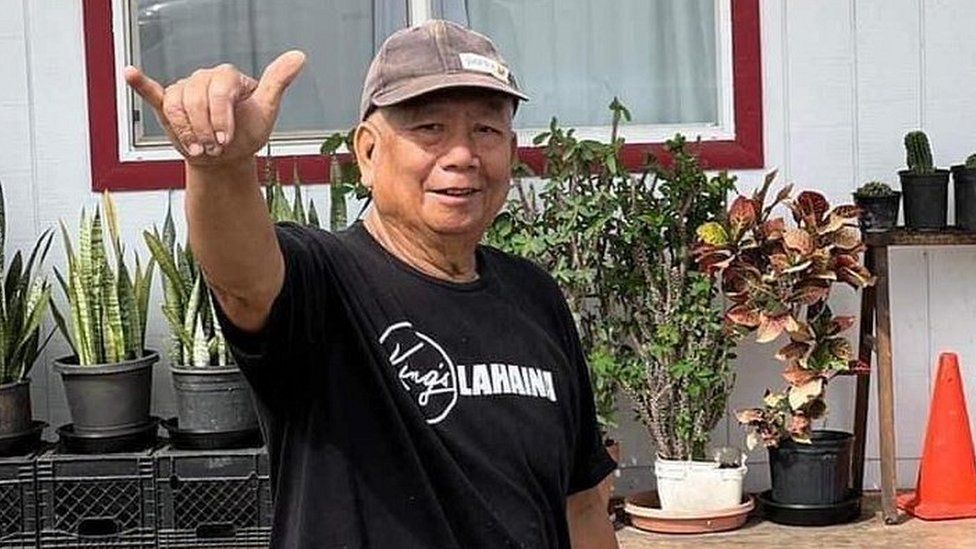
-
-
-
23 hours ago
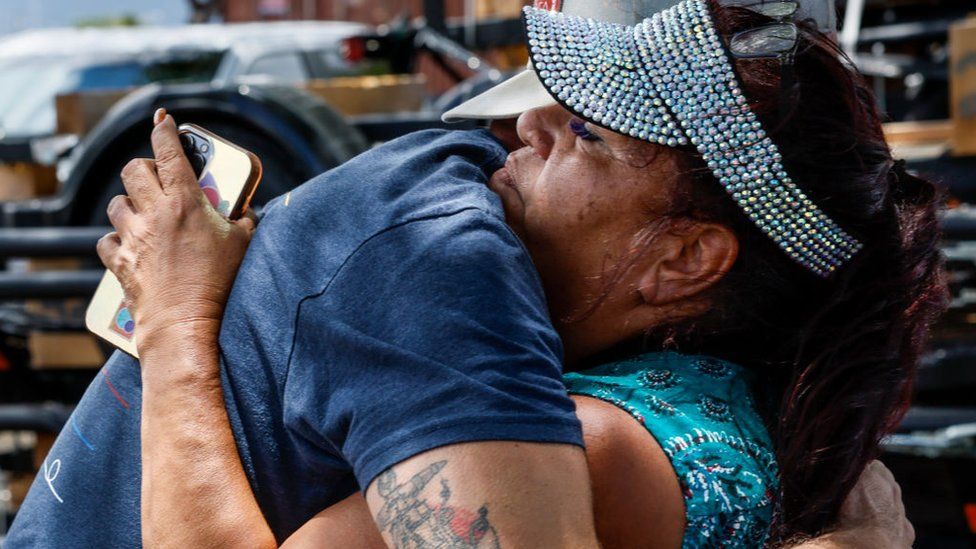
-

